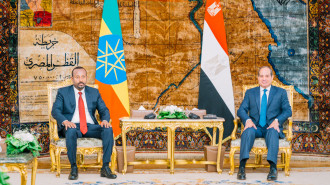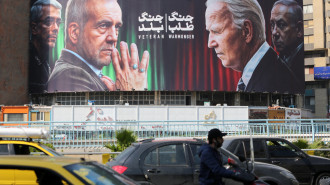The Turkish warhorse rides into battle
As the formation of a new Turkish government remains gridlocked, the military is taking a more decisive role over the border in Syria and Iraq.
Turkish warplanes have pounded dozens of Islamic State group and Kurdish targets over the past week following two separate but interlinked attacks which has brought Syria's war to Turkish soil.
On 20 July, IS was implicated in the bombing of a Kurdish activist camp over the border from war-ravished Kobani. The Kurdistan Workers Party (PKK) took responsibility for the shooting of two Turkish police officers two days later, shattering a long-standing ceasefire with Ankara.
The fact that the Turkish air force is hitting Kurdish fighters who are on the frontline of the war against IS might appear counterproductive.
But it highlights an undeniable truth that the Kurdish PKK are still viewed as enemy number one in Ankara.
With fresh elections looming, President Recip Erdogan and Prime Minister Ahmet Davagotlu might attempt to capitalise on military action against the group.
Enemy number one
Much of this fits with the traditional narrative that the Kurds, like the Armenians before, are usurpers determined to destroy Turkish power.
 |
|
| Click to enlarge |
For this reason the air raids on PKK positions have proved popular with large sections of the population who see this as a war to protect the Turkish state.
Much of the western narrative about Erdogan - as a conservative with autocratic tendencies - has been formed by the images and words of Turkish youth bravely confronting police at Gezi Park. Yet Erdogan still remains popular with much of the country's working class and religiously-minded mainstream.
Until recently, the Justice and Development Party administration was working hard to secure a peace deal that might pacify the country's Kurdish minority.
This might have been a gamble, which if successful, would undermine the power of the military that has been involved in four coups since Turkey's independence.
Many are wondering what has transformed the once conciliatory and cautious politician - despised by the mighty army and Kemalists for his unsecular views - into a swashbuckling adventurer with the generals against Kurdish "terror".
The fact that the most recent critical voices against Erdogan's authoritarian leadership are from the left, not the military, offers one explanation.
| Erdogan still remains popular with much of the country's working class and religiously-minded mainstream. |
The recent marriage between the left and Kurds gave the recently formed People's Democratic Party a spectacular success in the last election.
Although they have been careful to portray themselves as a broad-left party rather than a political arm of the PKK much of the Turkish public view them as the latter.
Kurdish project
Erdogan's ambivalence towards the Kurds is not just paranoia.
Recent Kurdish military successes against the Islamic State group have put their fighters on Syria's border with Turkey.
What exists of a pseudo-Kurdish state is far more efficiently run than the chaos that reigns in much of the rebel-held territories, who are in a state of total war with multiple armies and militias.
Heroic Kurdish fighters have been portrayed favourably in Western media unlike the rebel ranks.
It has left the YPG - the PKK's Syrian incarnation - to feel secure enough to hit Ankara's interests, while simultaneously pursuing a campaign to flush IS out of Kurdistan.
Recently, an Iraqi-Kurdish oil pipeline that travels through Turkey was bombed by the PKK, and Turkish security forces and workers have also been attacked.
Even the US appear to have turned on their Kurdish anti-IS collaborators, when the White House spokesperson described the PKK as a "terrorist organisation". NATO have also said they "stand in strong solidarity" with Turkey against "terrorism".
This effectively gives Turkey the green light pursue the group, just as the US hit al-Nusra Front bases as part of its anti-IS aerial offensive, despite the al-Qaeda affiliate being a leading party in the rebel offensive against IS and the regime.
Add to this are alleged YPG atrocities against Syria's Sunni Arabs, then the case for intervention in Syria is a more compelling case. Turkey's synchronised bombing of IS also gives the anti-terror campaign greater international legitimacy.
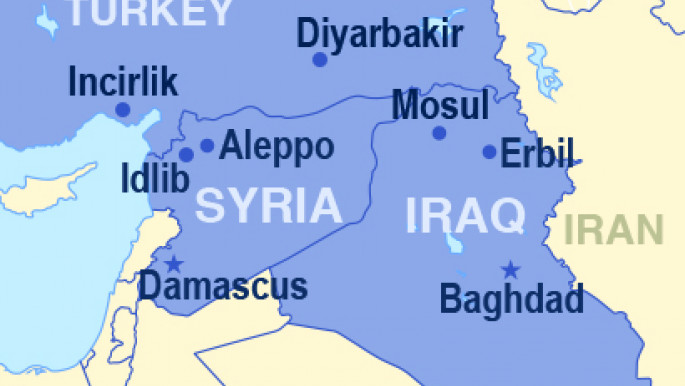 |
|
| Click to enlarge |
Syrian war
Another motive for Erdogan stepping into the Syrian conflict is that it will help entrench his allies in the Syrian opposition who could carve out territory in the north of the country at the expense of the Kurds.
There is talk of the Turkish military and Syrian rebel groups establishing a 64 kilometre "safe zone" in northern Syria, free of Islamic State group militants. This would make an effective launch pad against Bashar al-Assad's regime and neutralise YPG and IS expansionism.
Turkish operations in the south indicate that an invasion is imminent.
There are increasing calls for Turkish intervention by leading rebel figures such as Colonel Abdul Jabbar Akidi of the Free Syrian Army during a recent CNN interview.
In a statement to al-Souriya net, Brigadier Zaher al-Saket of the Aleppo Military Council, said he supported the Turkish military's campaign against the YPG and IS.
Ankara's safe zone plan would also alleviate the refugee crisis in the country, he says, and protect civilians from the regime's aerial attacks.
Perhaps most significant was the brigadier's comment that an anti-IS safe zone would halt "the PKK's project to establish a Kurdish entity in northern Syria". This hints at unison between Ankara and the Syrian rebel's aims, who would both benefit from nipping Kurdish nationalism in the bud.
Sceptical Turkish leftists believe that the timing of the Turkish offensive against the PKK is suspicious.
The People's Democratic Party's charismatic leader, Selhattin Demirtas, has attacked plans for the anti-IS safe zone in northern Syria. He has also criticised the Turkish bombing of the PKK and called on Ankara and the Kurdish party to re-establish peace talks.
However, further protestations against Turkey's "anti-terror" campaign might appear unpatriotic and further underline the party's links to Kurdish nationalist groups. Large sections of Turkey's Kurdish population also resent the autocratic nature of the PKK, and its secular-Marxist principles.
Many conservatives and Kemalists could support the "war party" in the next election, and the prosperity the party has brought Turkish businesses in peacetime offers a sense of stability and continuation once the fighting is over.
Erdogan might now be thinking of capitalising on the country's determined stance in fighting terrorism by calling snap elections
If he succeeds in establishing a safe zone cleanly and clinically, then Erdogan can cement his place as one of the region's kingmakers making his position as premier of Turkey will look immeasurably safer.

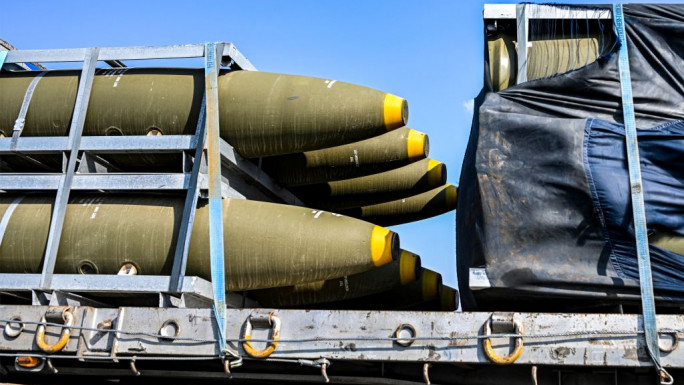
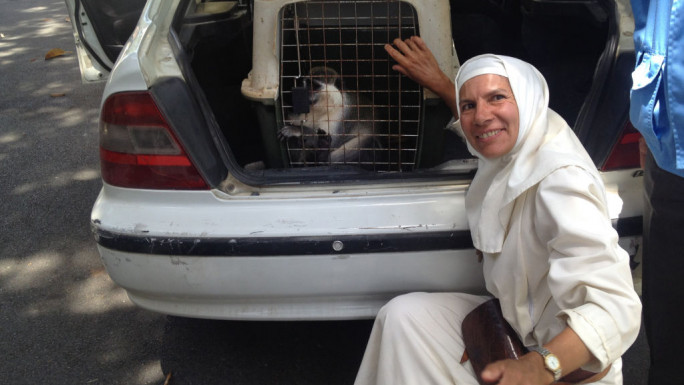
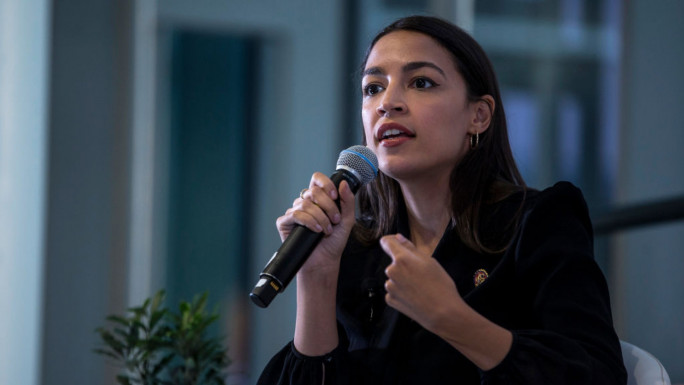
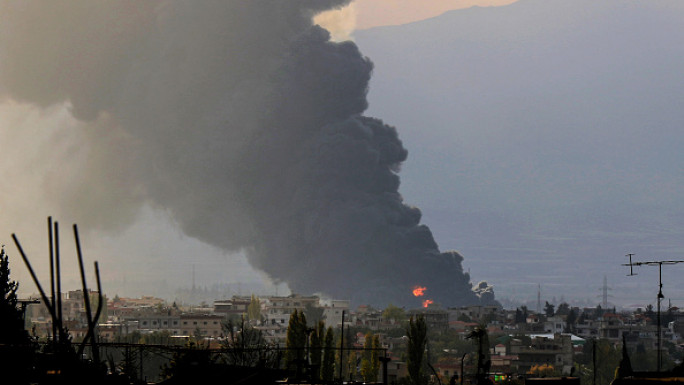
 Follow the Middle East's top stories in English at The New Arab on Google News
Follow the Middle East's top stories in English at The New Arab on Google News
